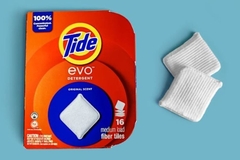Clean beauty’s evolution from trendy term to industry movement

A growing demand for transparency, safety, and sustainability drives the clean beauty trend. Today’s consumers are more informed and selective, seeking ethically sourced ingredients that deliver results without harming the skin or the planet.
Innova Market Insights data suggests that over half of global consumers associate “clean” beauty with natural ingredients. Reflecting this mindset, personal care products boasting natural and organic claims have surged by 18% globally between April 2020 and March 2025. Skin care leads the clean beauty movement with the highest number of launches, while fragrances quickly emerge as a fast-growing segment.
Personal Care Insights speaks to PhytoGaia and Lush about how clean beauty is at the core of a sustainable cosmetics industry, driven by consumers’ need for transparency.
Dr. Ariati Aris, scientific affairs specialist at PhytoGaia, partially attributes the industry’s move toward clean beauty to increased access to information. Social media and digital platforms empower consumers to research ingredients, share experiences, and hold brands accountable.
“At the same time, sustainability has become a priority, with more people looking for products that combine skin health with environmental responsibility, from responsibly harvested botanicals to packaging designed for minimal waste.”
“Ultimately, the clean beauty movement reflects a broader lifestyle choice that blends wellness, ethics, and performance in a way that resonates with modern values.”
More than a buzzword
Lush says it does not align with the clean beauty label, because it has become an umbrella term “that can sometimes promote misinformation or fear-based marketing.”
“Instead, we focus on what we’ve always done: creating effective products that care for the long-term health of your skin, using fresh, high-quality ingredients,” says a Lush spokesperson.
 Natural ingredients are at the heart of the clean beauty movement. “Rather than chasing trends, we have consistently prioritized skin kindness and integrity. Our approach is to support your skin through all stages of life, helping it perform its natural functions with minimal stress.”
Natural ingredients are at the heart of the clean beauty movement. “Rather than chasing trends, we have consistently prioritized skin kindness and integrity. Our approach is to support your skin through all stages of life, helping it perform its natural functions with minimal stress.”
Bryan See, VP of Business Development and Technical Support at PhytoGaia, adds that transparency is key to clean beauty. “Companies must move beyond marketing buzzwords and support every claim with credible science, recognized certifications, and full ingredient disclosure.”
See calls attention to greenwashing and says it is a significant challenge in the beauty industry. He explains that vague or unverified claims can mislead consumers and erode trust.
“True clean beauty requires integrity from source to shelf — from ethical sourcing and responsible manufacturing to honest labelling and third-party validation or certification whenever possible. When companies commit to this level of openness and accountability, they not only avoid greenwashing but also build lasting consumer loyalty and help shape a more transparent, responsible beauty industry.”
See says it is essential to understand that “clean label” goes beyond marketing — it is about transparency, simplicity, and trust.
“For consumers, it means products made with safe, recognizable ingredients, free from unnecessary chemicals or synthetics. At PhytoGaia, our branded ingredients like TocoGaia and STGaia support clean label beauty by being sustainably sourced, non-solvent and non-chemical extracted and backed by science — delivering both skin health benefits and peace of mind.”
Sustainable solutions
PhytoGaia’s TocoGaia and STGaia are naturally extracted from sustainably sourced palm fruits via a non-solvent, non-chemical extraction process (non-biodiesel route). They are free from synthetic additives and meet EU contaminant standards (BaP/PAHs). The branded phytonutrients are backed by scientific research and offer antioxidant protection and skin-rejuvenating benefits.
PhytoGaia recently received approval for a human clinical trial to evaluate STGaia’s role in healthy aging, cellular longevity, and telomere preservation. The complex contains a mixture of tocotrienols and plant squalene. The company claims that STGaia is “the first” in the market to offer this combination.
Meanwhile, Lush’s product offerings work to be gentle on the skin and the environment. Clean beauty emphasizes transparency and sustainability in the industry.
Clean beauty emphasizes transparency and sustainability in the industry.
“We’ve long favored natural ingredients we have co-evolved with and used for centuries, delivered as fresh as possible. Many of our products are entirely self-preserving, staying fresh and safe to use without synthetic preservatives, supporting the health of your microbiome. Owning our own factories allows us to make small batches and distribute them quickly, so products reach customers at their most effective,” says the spokesperson.
“In a beauty industry that increasingly promotes invasive procedures, we offer a gentler, more sustainable path – respecting the skin barrier and the microbiome, which protect against environmental stressors like pollution, UV rays, and pathogens.”
Regulation impact
Stricter global regulations on safety, labeling, and environmental impact are pressuring brands to reformulate with cleaner, compliant ingredients.
“This shift supports the adoption of natural, science-backed actives like tocotrienols and plant-based squalene – that meet rigorous safety standards while delivering results,” says See.
“These changes are also encouraging greater transparency and accountability across the supply chain, from ingredient sourcing to manufacturing practices. As compliance requirements tighten, innovation is leaning toward multi-functional, sustainable ingredients that not only satisfy regulatory demands but also align with consumer expectations for performance, ethics, and environmental responsibility.”
Last month, biotech company Äio received a grant from the Estonian government to speed up production of its yeast-derived sustainable fat alternative for cosmetic formulations. The company turns agricultural byproducts, such as wood, into fats and oils through yeast fermentation.
The €1 million (US$1.16 million) grant comes ahead of the EU’s Deforestation Regulation, which will take effect later this year. Äio said the funds will speed up the production of sustainable alternatives amid the new regulation banning deforestation throughout the supply chain.
 PhytoGaia's TocoGaia offers skin health benefits with sustainable sourcing. “Äio’s solution utilises biomass fermentation to create sustainable alternatives to traditional plant- and fossil-based oils. At the heart of our technology is the ability to convert low-value industrial side streams into high-value specialty lipids,” Magdalena Koziol, head of cosmetics development at Äio, told Personal Care Insights.
PhytoGaia's TocoGaia offers skin health benefits with sustainable sourcing. “Äio’s solution utilises biomass fermentation to create sustainable alternatives to traditional plant- and fossil-based oils. At the heart of our technology is the ability to convert low-value industrial side streams into high-value specialty lipids,” Magdalena Koziol, head of cosmetics development at Äio, told Personal Care Insights.
Looking ahead
PhytoGaia predicts that clean beauty will go beyond “free-from” claims over the next five years. See says consumers will increasingly demand clinically validated, bioactive ingredients that meet safety and sustainability standards and deliver proven, visible results.
“Sustainable sourcing will become non-negotiable, with brands expected to trace ingredients from origin to shelf to ensure ethical, low-impact production at every stage. Packaging innovation will also accelerate with circular solutions– from refillable systems to biodegradable materials – becoming the new normal,” Aris details.
“We will also see the rise of functional beauty, where efficacy meets purity. This next phase of innovation will focus on formulas that actively improve skin health, supported by both nature and science while respecting the planet.”













